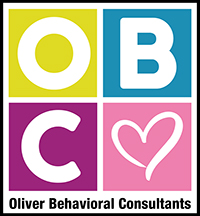Mental Health Therapy
The therapist is an individual who seeks to create a safe space in which clients feel heard, supported, learn coping skills to manage life’s stressors, understand mental health conditions, and heal from life experiences. It is important for the therapist to express validation, acceptance, active listening, support, develop trust and confidence, and be empathic.
The therapeutic focus is supporting the child and/or teen to express stressors that may be present at school, in the home environment, or mental health conditions present. Creating a therapy space for them to share thoughts, feelings and how the current stressors are negatively impactful. The therapist can help the client lay a foundation to rely upon as they grow and mature and includes advocating for their rights, demonstrating resilience, using coping tools, and possessing a healthy sense of self and identity.
Play therapy involves the use of toys, blocks, dolls, puppets, drawings, and games to help the child recognize, identify, and verbalize feelings. The psychotherapist observes how the child uses play materials and identifies themes or patterns to understand the child’s problems. Through a combination of talk and play the child has an opportunity to better understand and manage their conflicts, feelings, and behavior (cited from American Academy of Child and Adolescent Psychiatry).
Treatment modalities:
Cognitive Behavior Therapy (CBT):
Identifies negative and irrational thoughts that create unhealthy, dysfunctional behaviors and increase mental health symptoms. CBT helps clients learn tools to improve healthier and more productive ways to decrease negative automatic thought patterns. Individuals with anxiety, depression, post-traumatic stress disorder (PTSD), obsessive-compulsive disorder (OCD), and other mental health conditions.
Dialectical behavior Therapy (DBT):
DBT is a skills-based form of psychotherapy that teaches individuals how to be present in the moment, develop healthy coping tools to manage stress, improve emotional regulation and work towards positive relationships. DBT is an effective treatment tool to treat people with chronic mental health conditions, demonstrate poor emotional regulations skills, PTSD, and eating disorders.
Somatic Experiencing Therapy:
Is a body-centered therapy that looks at the impact of trauma, stress, distressing life events, and other issues on the person’s physical wellbeing. One of the primary objectives of Somatic therapy is exploring the person’s thoughts, feelings, current belief system and perceptions and their negative impact on the physical self. Somatic therapy utilizes mindfulness, body awareness and breath work to treat people with anxiety, trauma, grief and loss, chronic stress, depression, and physical conditions, such as a chronic pain and digestive system issues.
Experiential:
OBC utilizes art therapy to support increase insight, build a healthy and strong sense of self and identity, self-expression in a safe and artistic manner and processing trauma. Art therapy is extremely useful in the treatment of numerous mental health conditions.
Connect with Us for Expert Care
Lorem ipsum dolor sit amet, consectetur adipiscing elit. Ut elit tellus, luctus nec ullamcorper mattis, pulvinar dapibus leo.
